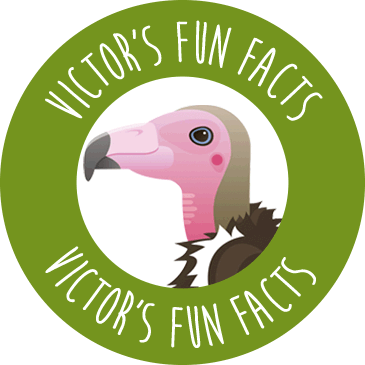
The Hawk Conservancy Trust’s story all starts with Reg Smith, the son of a butcher, born and bred in Andover. His lifetime ambition was to become a farmer and in 1952, with the help of his father, Tom, he bought Sarson Farm which, little known to Reg at the time, would become the site of the Hawk Conservancy Trust.
Reg married Hilary in 1956 and together they ran the farm, keeping cows, pigs and turkeys, while growing fruit and vegetables which they sold at Andover market. They regularly took in young and orphaned animals and appeared with them on various television programmes.
It was an appearance on BBC’s Blue Peter in the early 1960s that would change the course of Reg and Hilary’s farm forever. After an interview about their albino badger, the presenter suggested people visit their farm near Andover, which they promptly did!
Hundreds of people arrived at the farm wanting to see the animals so Reg and Hilary decided to sell part of it to raise money to open a zoo. In 1966, they opened Weyhill Zoo, specialising in European species of wildlife including wolves, bears and birds of prey.
It was the birds of prey that captured the heart of Reg and Hilary’s youngest son, Ashley, and together they trained some of the birds before demonstrating their first public flying display in 1975. It was a huge success. Around this time, Reg also played a key role in the formation of the Zoo Licensing Act, which set standards for the way animals should be cared for in captivity.
Unfortunately, by the late 1970s, Reg’s passion for European wildlife was not being shared by the general public, who wanted to see bigger and more exotic animal species such as elephants. However, Ashley’s passion for birds of prey was stronger than ever and, as a family, they decided that the time was right to specialise in one group of species. With this change, in 1980-1981, the park changed its name to The Hawk Conservancy.
Over the next few years, as the collection of raptors steadily grew, the care of injured wildlife continued, although there was now an emphasis on raptors, which still spent most of their time in the farmhouse. The Trust started to become involved with conservation breeding programmes and was one of the first collections to breed a variety of raptor species.
The Hawk Conservancy’s birds were in great demand for TV and film work and Ashley travelled to film studios all over the country. Some of the work included a James Bond film, pop videos and several TV commercials. Ashley and his birds met Prince Charles and Princess Diana at an exhibition and many of the birds were featured on natural history programmes including David Attenborough’s The Life of Birds.
In 1995, Reg was able to buy back the seven acres of land he’d sold to finance Weyhill Zoo. Sadly, Reg passed away that year but, as a tribute to him, Ashley and Hilary converted that land from arable farmland back into a beautiful chalk downland wildflower meadow where the spectacular Masters of the Sky display is flown today.
In the late 1990s and early 2000s, the Hawk Conservancy Trust won awards as both a visitor attraction and a conservation organisation.
A fundraising appeal raised enough money over three years to build a state-of-the-art bird of prey hospital. Opened by the Duke of Gloucester, this facility provides specialist care and treatment for up to 200 sick, injured or orphaned raptors brought to the Trust annually. The hospital was built in recognition of the care and dedication Hilary had given to wildlife for more than 40 years, the hospital, known originally as ‘Hilary’s Hospital’ was a fitting memorial after her sad death in 2006.
In 2002, the Hawk Conservancy Trust was formed to take responsibility for rehabilitation, conservation and research activities. Three years later the Trust assumed full responsibility for the entire operational setting, including education.
Today, the Trust continues Reg and Hilary’s conservation work on a global scale. By working with many organisations and conservation groups across the world, we are able to deliver conservation, education, rehabilitation and research programmes and generate awareness for birds of prey, their habitats and the problems they face. This includes projects such as the Raptor Nest Box and Red Kite reintroduction projects in the UK through to the International Vulture Programme in southern Africa and south Asia.
None of this would be possible without the support of the many thousands of visitors who visit the Trust every year. As a charity, membership, entrance and support fees are a vital method of funding all the work at the Trust. Volunteers and staff work tirelessly to ensure that the vital work which began from humble beginnings more than 50 years ago, continues for many more years to come.
